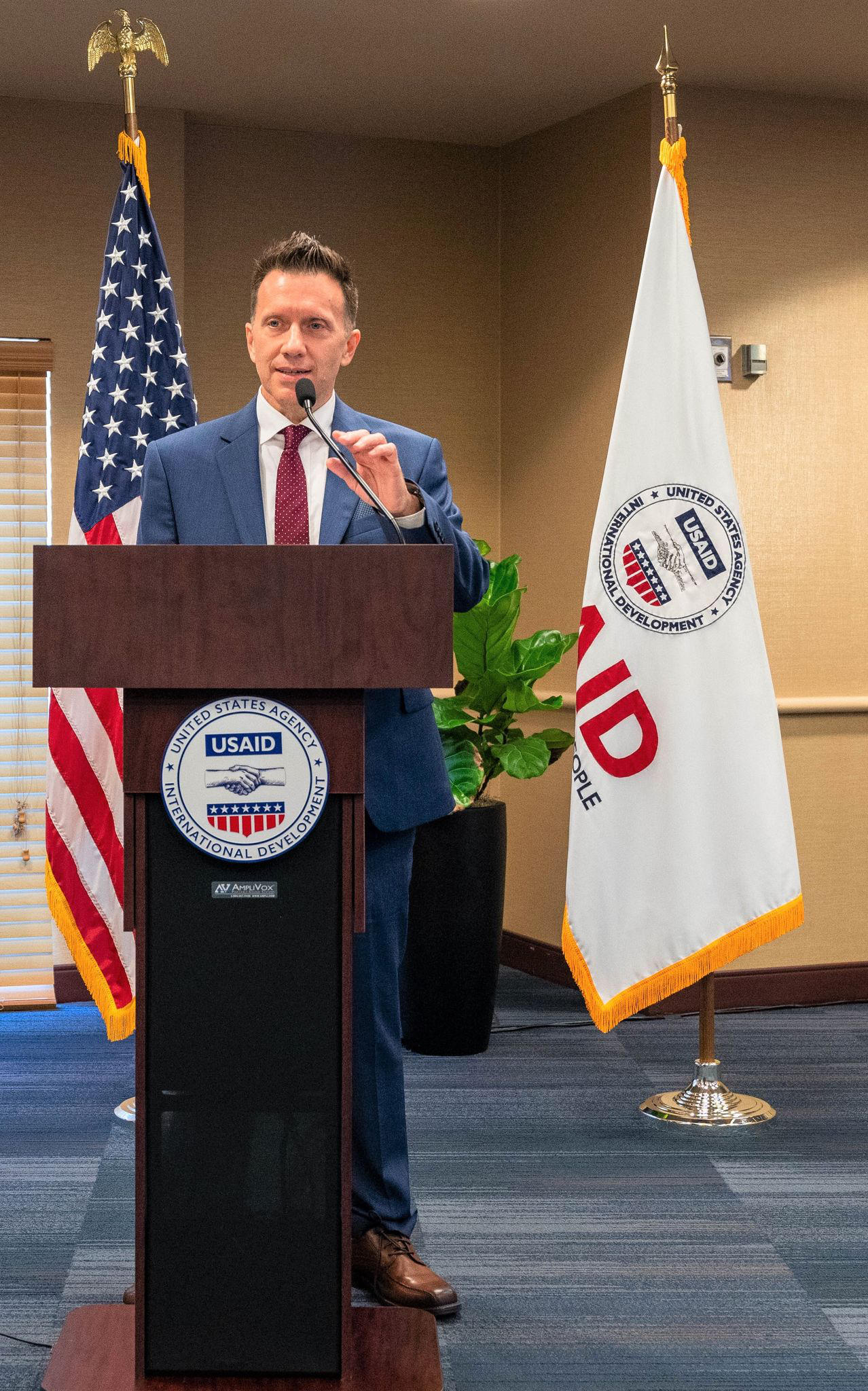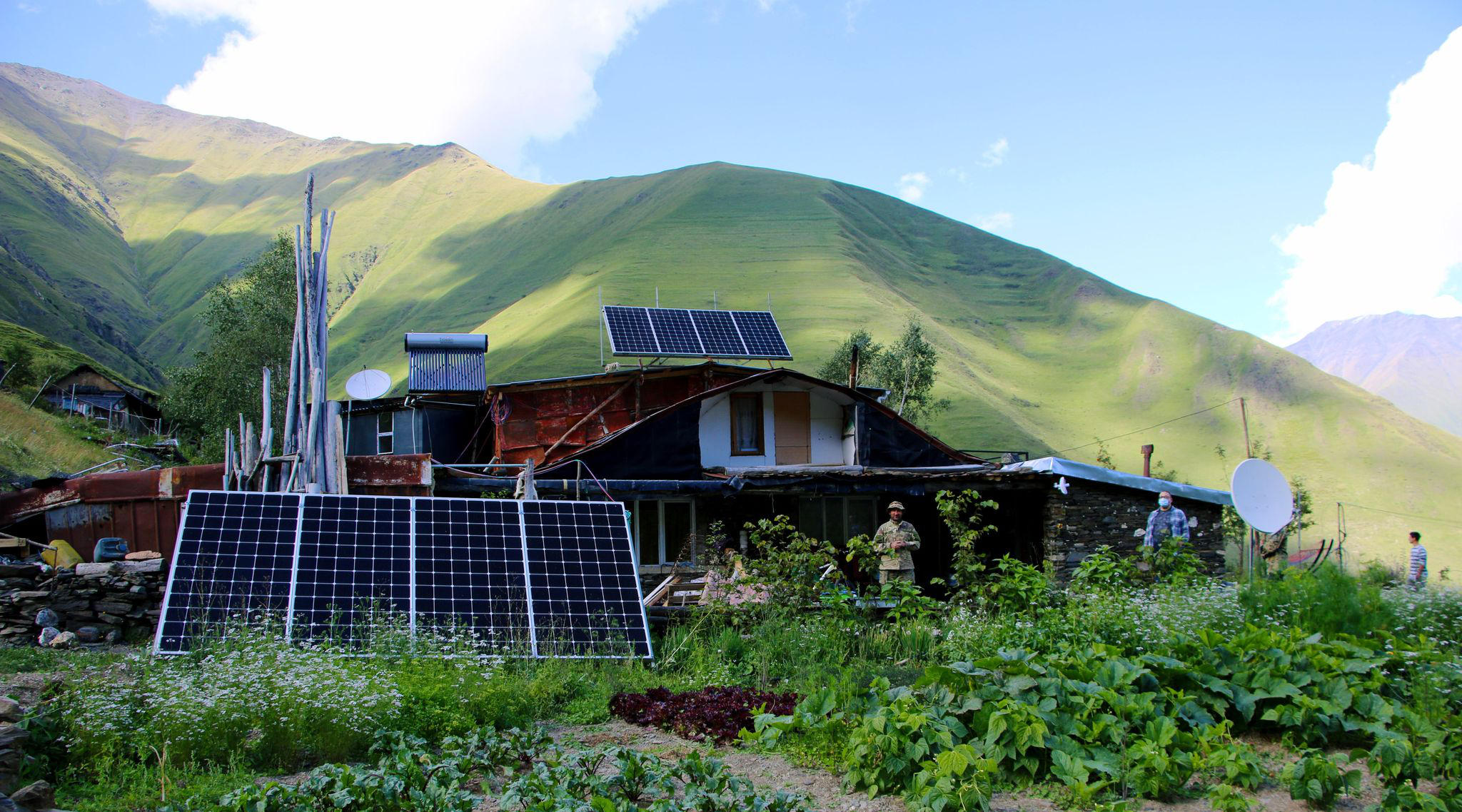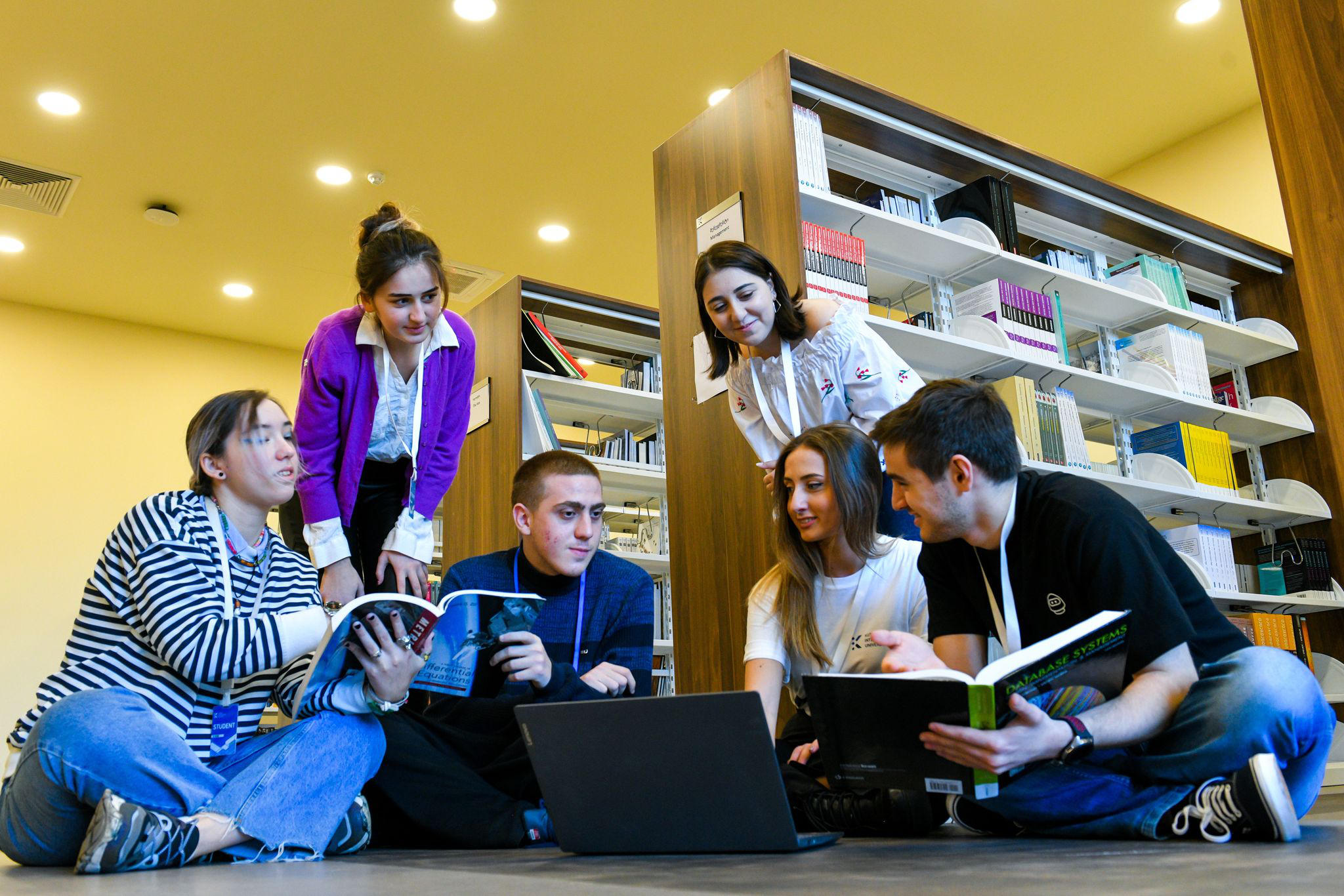USAID first opened our doors in Georgia in 1992, shortly after the United States and Georgia established formal diplomatic relations. In total, USAID has invested approximately $1.9 billion in programs to help Georgia to build effective and accountable public institutions; improved education, healthcare, and other public services; an economy that creates jobs and prosperity for workers, families, and communities across the country; and democratic processes that put citizens at the center.
USAID currently invests in 40 development programs that support Georgia in a number of key areas – economic growth, energy security, education, democratic governance, and many others – all of which are aligned with Georgia’s domestic priorities to strengthen its security, prosperity, and democracy and to continue advancing toward Europe.
USAID Mission Director John Pennell discusses how USAID has deepened its partnership with Georgia to benefit all Georgians and help the country take advantage of its unique opportunity to become a candidate for European Union membership.
Could you provide insights into the remarkable 30-year partnership between the United States and Georgia? What are the main highlights of this partnership?
USAID first opened our doors in Georgia in 1992, shortly after the United States and Georgia established formal diplomatic relations. We have stood side-by-side with Georgia and the Georgian people ever since, working with government institutions, businesses, communities, civic organizations, and citizens to support Georgia’s own efforts to become a more secure, prosperous, and democratic member of the Euro-Atlantic community.
In total, USAID has invested approximately $1.9 billion in programs to help Georgia to build effective and accountable public institutions; improved education, healthcare, and other public services; an economy that creates jobs and prosperity for workers, families, and communities across the country; and democratic processes that put citizens at the center. For example, we have supported, and continue to support, all of Georgia’s more than 2,000 public schools. We have trained more than 30,000 teachers on international quality teaching methods. We helped Georgia strengthen its health system to reduce infant and child mortality, and achieve a child immunization rate of 85% by 2012 – by supporting immunization of children for Diphtheria, Polio, Measles, and Tuberculosis.
These are just some examples of many. Our assistance helps Georgians build stronger communities, including in areas near the Administrative Boundary Lines, so that citizens can be confident that their own lives will improve and that their children will have more opportunities in the future.
Why does Georgia hold a special place as a partner in USAID's mission? How does this partnership contribute to broader goals and objectives?
The United States and Georgia share the same objective of a more secure, prosperous, and democratic Georgia that is firmly integrated with the West. USAID is here to strengthen the strategic partnership between the United States and Georgia, supporting Georgia to continue developing domestically and be a source of stability and prosperity in the South Caucasus region. USAID’s partnership with Georgia also includes work to advance climate smart energy security, increase regional connectivity, protect human rights and basic freedoms, and advance the social and economic inclusion of all people including women, youth, persons with disabilities, and ethnic and religious minorities. I’m heartened to know that the partnership between the United States and Georgia is built on a shared commitment to these values.
Could you shed light on the specific sectors in which USAID engages with projects in Georgia? What factors guide the selection of these sectors, and how does this relate to the evolving needs and context in Georgia?

USAID currently invests in 40 development programs that support Georgia in a number of key areas – economic growth, energy security, education,democratic governance, and many others – all of which are aligned with Georgia’s domestic priorities to strengthen its security, prosperity, and democracy and to continue advancing toward Europe. In fact, We have a bilateral assistance agreement with the Government of Georgia, which provides the framework for all 40 USAID programs. As for how we implement these programs: we work with the Government of Georgia at the national and local levels, the private sector, civil society, academia, communities, and citizens, to identify and understand Georgia’s development challenges, and how USAID can partner with Georgia to overcome those challenges. Based on this input, we oversee programs to directly benefit Georgians from all walks of life – youth, members of underrepresented communities, people living in big cities, rural areas, ethnic minority communities, and near the Administrative Boundary Lines.

What are the current core priorities of USAID in Georgia? What key objectives and initiatives are being pursued to address the pressing challenges and opportunities?
USAID is always adapting and updating our programs to meet Georgia’s evolving needs as the country continues to develop. We have deepened our partnership to help Georgia take advantage of its unique opportunity to become a candidate for European Union membership. USAID works with the Government of Georgia and with civil society on key areas of democratic reform, including judicial reform and media freedom. We also support Georgia to conduct free and fair elections. We have increased our investment in Georgia’s energy security – helping modernize infrastructure, develop domestic sources of renewable energy, and improve the regulatory environment so Georgia can integrate with the European energy market. In terms of new USAID programs, we are focusing on helping Georgian workers and students get good jobs so they don’t have to leave home to earn a living or raise their families; improving national and local governance so that citizens can access good public services – schools, hospitals, roads, public spaces – wherever they live; countering harmful disinformation; and helping schools prepare their students to contribute to Georgia’s democracy as active and responsible citizens.
Can you highlight some of the standout projects that USAID has implemented in Georgia? What makes these projects particularly meaningful? Within the various sectors of engagement, are there any specific areas where USAID has achieved significant impact and success? Please share some insights into these achievements and their importance.
The Georgian and American people have achieved a lot together. We should all be proud. Some of the things I’m proudest of, going back 30 years:

More recently:
From your perspective, which areas in Georgia still require substantial development assistance and support? What role does USAID envision playing in addressing these areas?
It is remarkable to look at Georgia’s history since it regained independence, and consider the incredible progress made in this country in a relatively short period of time. Throughout that entire period, USAID is proud to have partnered closely with Georgia’s government and citizens, and strengthened the strategic partnership between our countries.
Following the European Commission’s November 8 recommendation that Georgia receive candidate status, we will continue to support all Georgians in their Euro-Atlantic aspirations. We will continue helping Georgia build a modern and secure energy system that is integrated with Europe. We will help Georgian businesses expand and export their products to Europe and other lucrative markets, so that Georgians in cities and in rural areas earn higher incomes for their families. We will continue creating opportunities for young people to become successful entrepreneurs and professionals and participate in civic activities to shape their own futures, and the future of their country.
All of this advances the mutual goal, shared by USAID, the Government of Georgia, and the Georgian people, to build a more prosperous, secure, and democratic European society where all citizens have opportunities to build better lives for themselves and their families.



